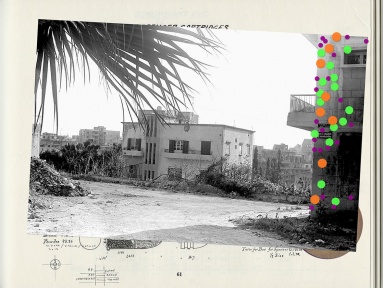America. You can see what he was going for. He wants to say: I am proudly allied with the gun people. I am a tough man, a manly man. A picture of a gun, and the terse caption: America, period. (The period pokes at me in its finality: not so much a caption as a manifesto.) In this country we have a right to bear arms, the man is saying. I oppose efforts by the government to tighten gun laws, he is saying. Gun control is fundamentally unamerican. And so the brother of the cowboy declares himself as laconic and unsentimentally violent a cowboy too. He is on the gun. His name is on the gun. He is the gun.
You can see the calculation: with his poll numbers low, he shifts rightward, draw some heat from the left, and thereby draw the support of the people who don’t like it when people draw heat for rightwing positions. Politics-by-stunt was working very well for the Lunatic with the Yellow Hair. Perhaps it worked for the governor, perhaps it didn’t. He certainly drew a lot of heat. Period.
On social media, the governor was mocked. In a predictably limited ideological gesture, the governor’s image was answered by other images, and these were labeled with the names of other places. In this form, in the form of “hilarious memes,” the story was reported in a comical way. Spain was a plate of ham. Australia was a nerf gun. The United Kingdom was a cup of tea in a fancy cup. The Netherlands was a circle of cheese. The tone-deafness and desperation of the governor’s tweet was too obvious for direct commentary, so mockery did the work instead. The memes proliferated, almost all of them conveying the idea that America is definitely crazy, definitely violent, and other countries are funny, kind, and sweet.
The governor was right, of course: the gun is America. Not only in the deranged misinterpretation of the 2nd Amendment—deranged, but not without an inner logic pertaining to people’s uninfringeable desire for danger—not only in the central role of the gun in the mass killing of those who lived on the land before the Americans, but also in the unrestrainable militarism that governs contemporary American life. The military’s swollen budget is one thing, but the arms trade is yet another: the death and mayhem that America exports to the world, and that returns home in various uncanny forms of blowback. The enormous trade whose unending continuation is a point of agreement for both right and left.
But what the memes miss, the labor that they inadvertently accomplish, is similar to that of the cartoons that emerged from the pain of the terrorist attack in late 2015 in Paris: ISIS have bullets, but we the French have champagne (which symbolizes the enjoyment of life), and that is obviously much better. Out of the bullet holes, champagne flows in defiance. A clash of civilizations.
Well. The countries that have champagne also have guns, and they happen to sell them everywhere. The French economy got a significant boost from arms sales to Saudi Arabia in 2015. The countries that make artisanal cheese also make grenades, strictly for export. It is true that in the first five minutes after a terrorist attack, everyone in any given country of the civilized West is an astonished pacifist. And then, and only then, does resolve introduce, for the first time in that nation's history, a reluctant but courageous meting out of vengeful violence.
In the series of photographs in Walid Raad’s “Let’s be honest, the weather helped” (1998/2006), colored dots represent bullets on the facades on buildings wrecked by war in Beirut. “I collected bullets and shrapnel. I would run out to the streets after a night or day of shelling to remove them from walls, cars, and trees. I kept detailed notes of where I found every bullet and photographed the sites of my findings, covering the holes with dots that corresponded to the bullet’s diameter and the mesmerizing hues I found on bullets’ tips.” Using the color clues, Raad found that the bullets shredding his country came from many different countries: Belgium, China, Egypt, Finland, Germany, Greece, Iraq, Israel, Italy, Libya, NATO, Romania, Saudi Arabia, Switzerland, the United Kingdom, the United States, and Venezuela.
Each of these places might be memetically represented by what its citizens enjoy. A glass of wine. Italy, period. But accurate too would be bullets, missiles, drones and bombs. America. A gun. Switzerland. A rocket launcher. Libya, Israel, Norway, Germany, all the death-dealing by all the nations, all the buying and selling and stockpiling by all the innocent (“How could this happen to us?”) and peace-loving nations. We are on the gun. Our name is on the gun. We are the gun.

